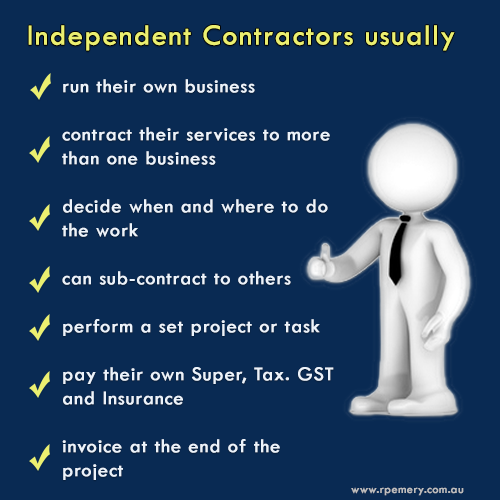The Fair Work Ombudsman often conducts audits and education campaigns targeting specific issues in the workplace.

FWO Found Jooine Pty Ltd guilty of sham contracting and find them almost $60,000.
As part of a general audit of businesses in the cleaning industry, the FWO was prompted to take action against employer Jooine Pty Ltd and it’s sole director, Mr. Lee, serving as a warning to all businesses to review their relationships with independent contractors.
The FWO alleged that Jooine Pty Ltd had engaged in sham contracting in relation to Mr Park, a part-time cleaner, and that Mr Lee attempted to disguise the true nature of an employment relationship between it and Mr Park.
Jooine Pty Ltd and Mr. Lee were found to have taken advantage of a vulnerable, employee, Mr. Park, who was on a working holiday from South Korea and had limited English skills.
The FWO pursued the matter through the Federal Circuit Court, in which it was found that Jooine Pty Ltd and Mr. Lee had:-
- misrepresented to the employee, Mr. Park, that he was an independent contractor and not an employee;
- underpaid wages – Mr. Park was paid $437, when he was in fact entitled to $2,132 under the relevant award. Overall, Mr. Park was underpaid $1,858.53, a significant amount given that the underpayment took place over a short period of just over two months;
- failed to pay annual leave totalling $164;
- deducted unlawful amounts from wages.
It was likely that Mr. Lee had knowingly exploited Mr. Park, and the Court took a very unsympathetic approach in penalising him for his unlawful behaviour. He was ordered to pay almost $60,000 in fines.
Sham contracting
Hiring an employee under the guise of a contractor, is illegal.
A contractor relationship may be preferred by some employers, due to the perceived benefits to the employer, such as:-
- the contractor is not subject to an award;
- there is no annual or other leave payable;
- tax benefits.
However, it is vital that the contractor is a bona fide contractor under Australian law. Passing an employee off as a contractor can land an employer in serious trouble, as seen in the above case against Jooine Pty Ltd and Mr. Lee.
What is an independent contractor?
It is easy to see why some confusion arises in ascertaining whether someone is an employee or an independent contractor. Even well-meaning employers have been caught out in this regard.
There is no set definition of an independent contractor, making it tricky to determine what the relationship is. The employment relationship is looked at in it’s entirety, rather than a limited or set definition being used. Certain aspects of the relationship are indicative of a contractor, whilst others show an employee.
You cannot make someone a contractor merely by having them sign a contract or statement specifying them as such. Rather, the contract would be one of a myriad of things within the totality of the relationship, that would be taken into account in determining whether the person is an employee or contractor.
In the case discussed above, the Fair Work Ombudsman considered the following factors where indicative of Mr. Park being an employee and not a contractor:-
a) before he commenced work with Jooine, Mr Park did not advertise for work, but replied to an advertisement by Jooine in the Korean online publication “Hojunara”;
b) Mr Park had no prior experience in running his own business;
c) Mr Park was asked to provide his Tax File Number to Mr Lee during the Training;
d) Mr Park was provided with two days of supervised training in his job and instructed what duties he should perform when cleaning;
e) Mr Park was provided all the products with which he was required to carry out his duties, apart from gloves;
f) Mr Park was required to wear a company uniform which contained Jooine’s name and logo;
g) Mr Lee, on behalf of Jooine, controlled Mr Park’s work and provided him with feedback;
h) Mr Park did not operate or run his own business, but rather was subject to the control of Jooine; and
i) Mr Park was paid a wage per hour rather than a rate for completion of work.
To read a transcript of the court proceeding go here.
Independent Contractors are Autonomous
Independent contractors are usually running their own business and contracting their services to more than one business.
They decide how and when to do the work, and can usually subcontract or hire others to delegate the work to.
They are contracted to do a set task or project – think business analyst, landscape designer, or other expert or professional hired to perform a specific task.
Contractors pay their own superannuation, tax, GST, insurance and will invoice the business, usually at the end of the contract or project. This is not the case in an employment relationship.

Tools and resources for employers
The Fair Work website has tools and guidelines dedicated to assisting businesses to determine whether someone is an employee or contractor. You can access the Fair Work site here:
http://www.fairwork.gov.au/employment/independent-contractors/contractor-or-employee/pages/default
The Australian Taxation Office has resources and tools available to assist businesses in deciding whether they are hiring an employee or contractor:
https://www.ato.gov.au/Calculators-and-tools/Employee-or-contractor/
Employment Agreements
Once you have determined whether you are hiring a contractor or employee, you can cement your relationship and set out the terms and other relevant details in an Independent Contractor Agreement or Employment Agreement
Related Articles
Completing Employee Payslips Correctly


